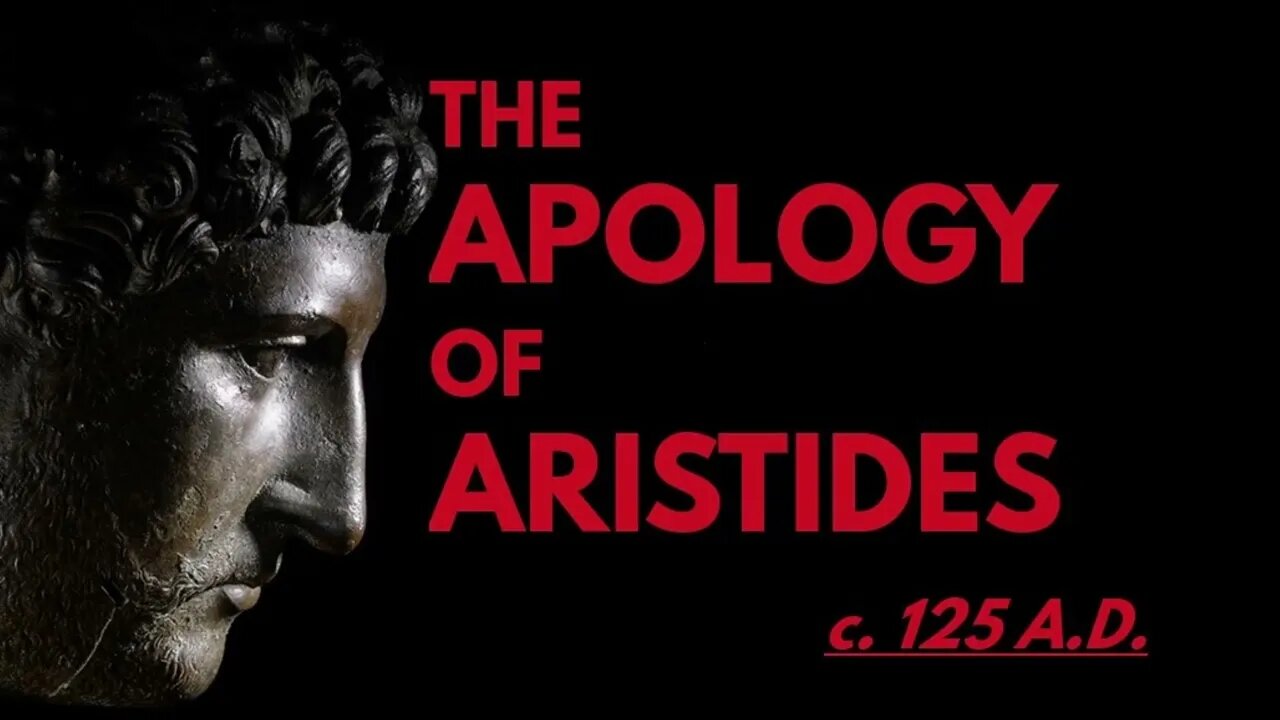Premium Only Content

The Apology of Aristides - c. 125 A.D.
Aristides the Athenian (also Saint Aristides or Marcianus Aristides; Greek: Ἀριστείδης Μαρκιανός) a Christian apologist living at Athens in the second century. According to Eusebius, the Emperor Hadrian, during his stay in Greece (123-127), caused himself to be initiated into the Eleusinian Mysteries. A persecution of the local Christians followed, due probably, to an outburst of pagan zeal, aroused by the Emperor's act. Two apologies for Christianity were composed on the occasion, that of Quadratus and that of Aristides which the author presented to Hadrian, at Athens, in 126 (Eusebius, Church History IV.3.3, and Chron. II, 166). St. Jerome, in his work Illustrious Men 20, calls him philosophus eloquentissimus, and, in his letter to Magnus (no. LXX), says of the "Apologeticum" that it was contextum philosophorum sententiis, and was later imitated by St. Justin Martyr. He says, further (De vir ill., loc. cit.), that the "Apology" was extant in his time, and highly thought of. Eusebius (loc. cit.), in the fourth century, states that it had a wide circulation among Christians.
-
 2:51:18
2:51:18
Barry Cunningham
5 hours agoBREAKING NEWS: NATIONAL GUARD ATTACK PRESS CONFERENCE AND LIVE UPDATES!
52.2K36 -
 LIVE
LIVE
SilverFox
2 hours ago🔴LIVE - ARC AT NIGHT! COME THRU!
100 watching -
 LIVE
LIVE
Joker Effect
2 hours agoCLAVICULAR - What the hell is "Looks Maxing"? Asmond Gold is a Demon. KaceyTron. Steve Will do it.
391 watching -
 LIVE
LIVE
SlingerGames
1 hour agoLIVE - Wumble Wednesday - BIRTHDAY STREAM!
100 watching -
 LIVE
LIVE
StevieTLIVE
2 hours agoWarzone Win Streaking BIG Challenges MASSIVE Hype NO Losses LOCK IN
17 watching -
 LIVE
LIVE
FrizzleMcDizzle
4 hours agoThis game is scary AF - RESIDENT EVIL 7
26 watching -
 1:03:47
1:03:47
TheCrucible
6 hours agoThe Extravaganza! EP: 66 (11/25/25)
84.8K13 -
 LIVE
LIVE
xxTOWERDOGxx
5 hours ago🦃Wobble Wobble, while you Gobble Gobble 🦃🟢Premium Creator🟢🪒No Shave November🪒
18 watching -
 2:02:38
2:02:38
Blabs Life
5 hours agoPART 4: Peter Jackson's King Kong: The Official Game of the Movie | Noob Plays
13.7K1 -
 1:16:43
1:16:43
BonginoReport
11 hours agoExposing Transgenderism w/ Amy Sousa - Nightly Scroll w/ Hayley Caronia (Ep.186)
127K27